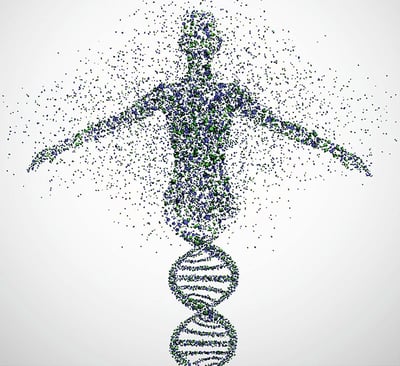Categories Prevention



Relevance: Medium-High
Most relevant for: Anyone diagnosed with breast cancer
Guideline: Breast surgeons recommend genetic testing for all breast cancer patients
The American Society of Breast Surgeons published statement on genetic testing for hereditary breast cancer on February 10, 2019. It includes recommendations about who should be tested. Among these is the recommendation that all breast cancer patients get genetic testing, as well as women who do not have breast cancer but fit the National Comprehensive Cancer Network (NCCN) guidelines. (3/25/19)
READ MORE ›


Relevance: High
Most relevant for: African American women who are at high risk for breast cancer
Study: Gaps in information about breast cancer risk and prevention impact African American women
A study showed that African American women with increased breast cancer risk experienced greater burdens in obtaining information at each step compared to white women. Racial differences in preventive choices correlated with differences in information and provider access. (3/14/19)
READ MORE ›


Relevance: Medium-High
Most relevant for: Bahamanian women
Study: Prevalence of BRCA founder mutations in Bahamian women
The Bahamas has the highest known frequency of BRCA mutations among people diagnosed with breast cancer. This study reviewed whether population-based BRCA testing (testing everyone regardless of family or personal history of cancer) would be an effective approach for finding mutation carriers in the Bahamas. (3/4/19)
READ MORE ›


Relevance: Medium-Low
Most relevant for: Women with or considering breast implant reconstruction
Study: Breast cancer implant study suggests links with illness but has serious flaws
THIS INFORMATION HAS BEEN UPDATED: In October 2021, the FDA issued guidance for people with breast implants Read our latest review on this topic.
An article in the Annals of Surgery, researchers conclude that their work supports an association between silicone breast implants and a range of conditions. This journal article was accompanied by two editorials in which experts voiced their disagreement with the way the analysis was performed and the conclusions of the authors. (2/21/19)
READ MORE ›


Relevance: Medium-High
Most relevant for: Women with an inherited mutation linked to increased risk for cancer
Article: Cancer experience in families affects decision making
Women with inherited mutations in genes that increase breast and ovarian cancer risk have an additional challenge: coping with how those mutations impact their families and how a family member’s cancer experience can shape their own perception. In a recent U.S. News and World Report article, Elaine Howley explores how a woman's decisions about healthcare, cancer prevention and treatment are affected by experience with cancer in the family. (9/25/18)
READ MORE ›


Relevance: Medium-High
Most relevant for: Women with BRCA1 mutations who have had risk-reducing ovary removal and have never been diagnosed with breast cancer
Study: Hormone therapy and breast cancer risk after ovary removal in women with a BRCA1 mutation
Does hormone therapy (HT) alter the risk of breast cancer for woman carrying a BRCA1 mutation who have never been diagnosed with cancer? In this study, researchers showed that among women with BRCA1 mutations, HT use did not increase breast cancer rates for 10 years after ovary removal. More women taking combined estrogen plus progesterone developed breast cancer compared to those taking estrogen only, though this difference was not statistically significant. (9/7/18)



Relevance: Medium
Most relevant for:
Article: Interview with Angelina Jolie's doctor promotes meatless diet and scientific inaccuracies
Dr. Kristi Funk, Angelina Jolie's Hollywood breast surgeon, is promoting her new book about breast cancer. This article from the UK newspaper The Times includes an interview with Funk about her book, which proposes that diet is responsible for breast cancer. This XRAYS addresses scientific inaccuracies in this article. (8/7/18)
READ MORE ›


Relevance: Medium
Most relevant for: People who are considering or have had direct-to-consumer testing
Study: Evaluation of some direct-to-consumer genetic testing reveals inaccuracies and misinterpretations
A clinical genetic testing laboratory examined results from direct-to-consumer genetic testing ordered directly by patients. They found many instances of false positives—reported mutations that were not actually present—and in some cases, reports of variants that "increased risk," but were actually benign. This study emphasized the importance of involving genetics experts in the interpretation of genetic test results. (6/28/18)
READ MORE ›


Relevance: High
Most relevant for: People with Icelandic heritage
Article: The right not to know when not knowing is dangerous
Healthcare providers are bound by the guiding principle of doing no harm. But how does this concept apply to their patients who have not consented to genetic testing or who do not want to know their results? In that case, is providing test results more harmful or not? Anna Clausen explores these issues in the context of breast cancer gene testing in her Global Health Now article “The Right Not to Know: When Ignorance is Bliss but Deadly.” (4/20/18)
READ MORE ›


Relevance: Medium-High
Most relevant for: Women who currently have textured implants or expanders or who have had them in the past
Study: FDA updates report on risk of lymphoma from breast implants
Note: On 07/25/19, the FDA announced a recall of Allergan BIOCELL textured implants and expanders, due to their association with BIA-ALCL. On October 27, 2021 the FDA announced stronger guidance on breast implant safety.
In March 2017, the Food and Drug Administration reported that patients with breast implants may be at increased risk for a rare type of lymphoma. This was covered in a previous XRAYS review. The FDA has continued to collect data since the first reported association in 2011. Recently, the agency released an update on the number of reported cases of breast implant-associated lymphoma and lifetime risk estimates for women with textured breast implants. (04/02/18)
READ MORE ›